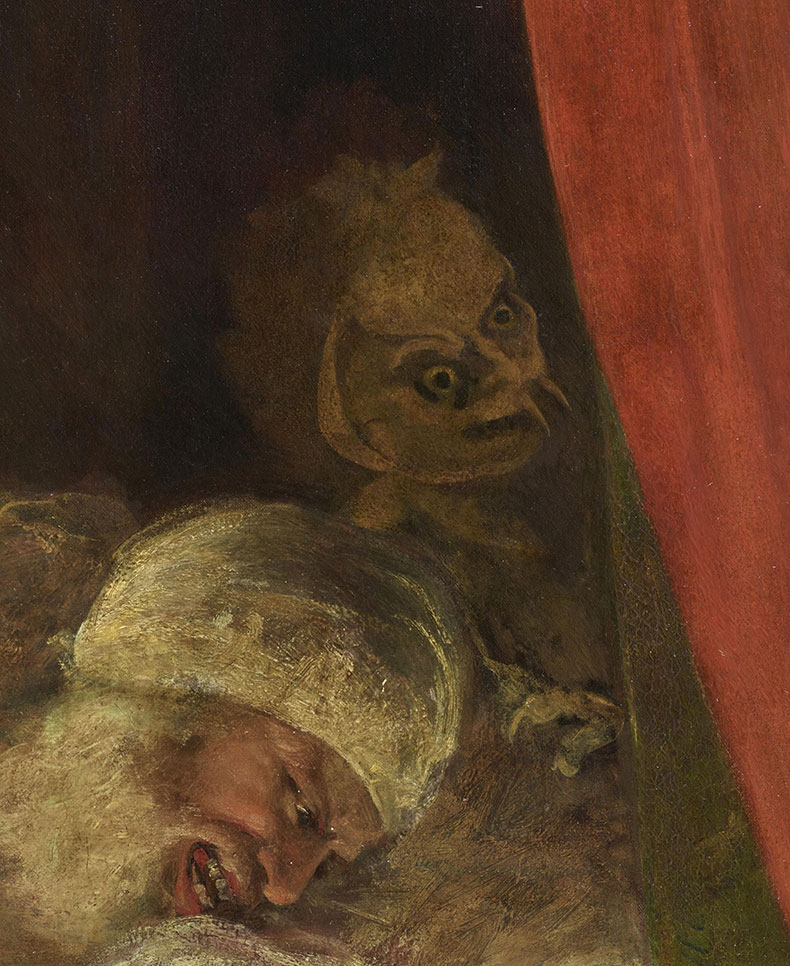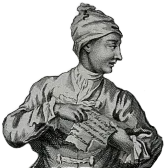Introducing Rakewell, Apollo’s wandering eye on the art world. Look out for regular posts taking a rakish perspective on art and museum stories.
Censorship is in the air right now, not least because the businessman Tatxo Benet has just opened a museum dedicated to it with what Rakewell can only describe as impeccable timing. The Museu de l’Art Prohibit in Barcelona is a collection of 200-odd works that have been denounced, attacked or removed from exhibition. But perhaps the latest revelation of historical censorship is beyond even them.
News that a ghastly fiend long ago censored from a painting by Joshua Reynolds has now been revealed comes like a breath of fresh (if somewhat sulphurous) air. The painting of 1789 depicts a scene from Shakespeare’s Henry VI, Part 2; as the king stands at the deathbed of the wicked Cardinal Beaufort, he implores God: ‘O! beat away the busy meddling fiend.’
Detail of the fiend in Death of Cardinal Beaufort (1377–1447), Sir Joshua Reynolds. Petworth House, West Sussex. © National Trust

Reynolds’s decision to make said evil spirit visible behind Beaufort’s bed met with a surprising degree of pearl-clutching from critics. Though the artist resisted calls to alter the work, the National Trust’s conservators found that several hands had later overpainted the piece (a print run in 1792, shortly after the artist’s death, likewise showed attempts to remove the fiend from the printing plate). Why the furore? Because Reynolds – perish the thought – had rendered a metaphor literal. Rakewell longs for the return of a time when acts of artistic censorship were so magnificently mild.
Got a story for Rakewell? Get in touch at rakewell@apollomag.com or via @Rakewelltweets.




